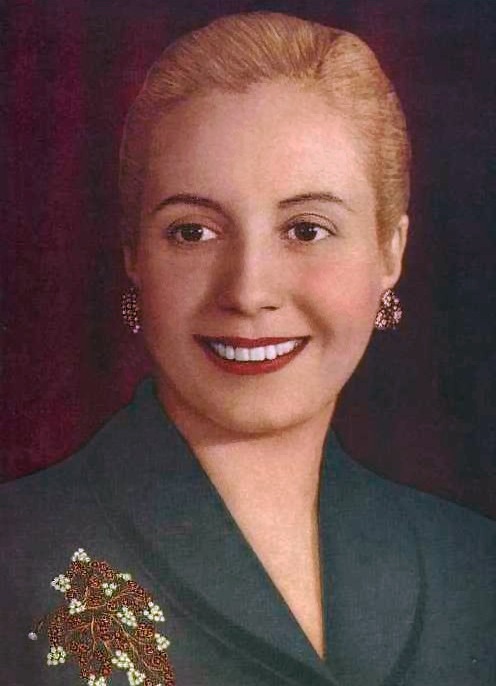Phil is the receptionist over here at Bourke Accounting. But I think that’s too small of a word to encompass all that he does. While Administrative Professional could work, secretary is too banal. Considering the way Phil gets things done, I don’t think Administrative Efficiency Officer is out of the question. Maybe even the short, sweet and archaic title of “Acolyte” would be pretty good.
When Phil needs a day off, I fill in as a sort of Phil, Jr. I don’t know half of his job, so I am responsible for phone answering, smiling in a vague way and generally calling a co-worker to help when my vague smile isn’t enough. As much of a team player as I am, I refuse to order food for weekly staff meetings (I did it once and the result was less than successful).
I am not the only one who is a bit reluctant to take on huge amounts of responsibility (mess up someone’s lunch and you mess up their entire day). Some might say that reticence regarding responsibility is a generational affliction. Some might argue that not wanting responsibility is an indication of immaturity or laziness. I humbly disagree. As in everything else, there are a lot of reasons for not wanting to be top dog.
Some people don’t want a big important role in life or business because they lack confidence or they fear failure. They could be the sort who doesn’t even want to try because, whatever is attempted, will end in disaster. I think this is sad and, for the most part, an unwarranted phobia. However, I don’t think there is anything wrong in recognizing one’s limitations; I wouldn’t attempt an emergency appendectomy, for example. But, give me the time and education to learn the craft of an emergency appendectomy and I’d probably give it a swing.
Another reason people sometimes avoid taking the reigns in a given situation is known as the diffusion of responsibility or the bystander effect. This is a “sociopsychological phenomenon whereby a person is less likely to take responsibility for action or inaction when others are present” (Wikipedia.org). This concept made headlines in 1964 when Kitty Genovese was stabbed to death outside of her apartment building. While many people in the neighborhood heard Ms. Genovese’s cries for help, some figured they were simply hearing a drunk person on the town. Those who thought they were hearing something really bad happening, concluded someone else must have already called the authorities and no action was required on their part. They shut their windows and went back to bed.
It must be asked, though, who says responsibility is such a great thing? I can never understand why someone would want to be president; no matter how smart and dedicated you may be, things can go sideways in an instant. Like Evita sang: When you act, the things you do affect us all. No, thank you. Also, I don’t think that much responsibility is good for anyone: have you ever seen before and after pictures of presidents after their terms have been completed?
Bourke Accounting tax preparers and bookkeepers have no problem shouldering towering mountains of responsibility for you. They don’t fear failure and they have the education and experience to back up their work. Also, our Bourke Accounting pros communicate and work with each other, so you will never fall through the cracks because someone thought someone else was handling an issue.
Come see us any time. Our number is 502-451-8773 and don’t forget to visit our website at www.bourkeaccounting.com. See you soon!
Written by Sue H.
Accountants only slow things down, figures get in the way – Webber & Rice, Evita “And the Money Kept Rolling in”
My parents took me to see Andrew Lloyd Webber and Tim Rice’s Evita on Broadway, starring Patti LuPone (Eva was played by an understudy, but I’m not remembering it that way). After hours of listening to the soundtrack, I became enamored with the poor girl who rose to power and was considered a saint by some.
Eva Peron (née Duarte) born in Argentina, was the illegitimate daughter of a poor woman and a married middle-class rancher. It’s been rumored that (the underaged) Eva seduced a tango singer, Agustin Magaldi, blackmailed him and forced him to take her to Buenos Aires. Not exactly true. According to biographers Navarro and Fraser, there was no proof that Magaldi played in her middle-of-nowhere town during that time-frame, so the logistics would have been difficult (Wikipedia.org).
According to Paul L. Montgomery’s book, Eva, Evita, Eva went on her own to the city when she was 15 or 16 (because of birth certificate forgeries, ages are a bit murky). However, the concept that Eva used men to further her career by utilizing her feminine wiles was sort of born from this original piece of gossip.
In the big town, Eva worked her way up until she secured “a spot on the sound radio” as a soap opera actress (Webber & Rice, “Goodnight and Thank You”). Since Eva had a harsh, “lower-class” accent, this was more difficult that it sounds. However, she was popular and started appearing in magazines.
Enter Colonel Juan Perón. Eva and Perón met at a fundraiser and it just sort of went from there. The folks around Colonel Perón did not exactly take kindly to the fact that he was palling around with an actress. It would almost be like if a US president had a dalliance with an adult film star – nothing against adult film stars, I’m just saying that there would be raised eyebrows.
Colonel Perón became President Perón, with Eva as a driving force behind his election. She reached out to the workers, the poor and to women – with pretty impressive results. In 1947, Eva won the right to vote for women. Detractors say that she only did it to procure more votes for Perón, but, either way, women finally had a voice in Argentinian politics. Here’s where it gets a little less altruistic.
Because the wives of the elite were sort of like “The Real Housewives of [Wherever],” and wouldn’t let Eva play philanthropist with them, she started her own “Foundation.” When people questioned where all the money was going, Eva said that “keeping books on social aid is capitalistic nonsense. I just use the money for the poor. I can’t stop to count it” (Fee.org). In addition, when asked why she dressed so well to hand out money, she said that the poor were starved for beauty and it was for them (Deseret.com). Although she spoke of the good she was doing, generally, her “Foundation” would house and feed street kids for a few days before dropping them back off on the street (Libcom.org), so if there was any good done, it wasn’t permanent.
There’s a lot more to this, but the key is that someone with good intentions ended up taking advantage of the people she was helping because she could. Read up on her, it’s interesting. For example, the guy, Dr. Pedro Ara, who spent a year embalming her body actually fell in love with her. Really.
As we have discussed, Bourke Accounting wants you to give responsibly to accredited charities. During these trying times, you will be approached by organizations looking for donations. Bourke Accounting professionals want you to protect your wallet, as well as your health. Only give to established charities and not newly set up websites (on Google, there are already over 10 pages of virus charities). Bourke Accounting experts know that you’re generous, but your Bourke Accounting specialists also want to make sure that you’re safe and financially solvent, as well.
Come see us any time. Our number is 502-451-8773 and don’t forget to visit our website at www.bourkeaccounting.com. See you soon!
Written by Sue H.

